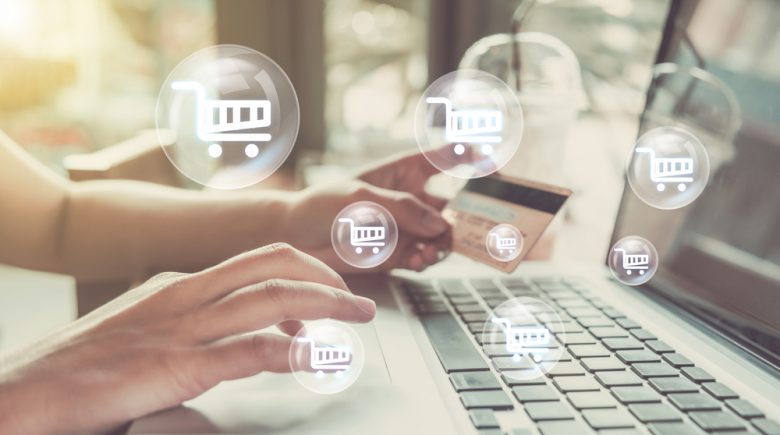The Basics of Consumer Credit
To understand the different types of credit and what it’s used for, you first need a simple definition of what it is. Consumer credit is money borrowed by individuals who plan to use it right away. The main example of such credit is using a credit card to purchase goods or services. You buy something and immediately “consume” the product but don’t pay for it until later.
Home loans or business loans aren’t considered consumer credit as they have an investment attached to them, e.g., houses or the business. Buying your morning coffee and bagel with your credit card is an example of consuming something immediately but paying later.
Types of Consumer Credit
Now that you have the basics of consumer credit, it’s important to note that there are several different types.
- Noninstallment credit – This form of credit is the simplest and most basic. One lump payment is due at the end of the credit period, usually a short-term like 30 days. There are no reoccurring monthly payments with noninstallment credit. A large department store may issue noninstallment credit to some of its customers. The customer purchases an item and pays in full within a short time period.
- Installment credit – The best example of installment credit is a loan for the purchase of a car. There’s a set price of the loan along with terms to pay it back in a specified period. The monthly payments will also include interest. In terms of the car, the lender holds onto the title until the final payment is made. This lessens the risk of the lender as they can repossess the car if they don’t receive full payment.
- Revolving credit – Finally, there’s revolving credit which is probably the most familiar. Credit cards are a type of revolving credit. There’s a certain credit limit issued to the debtor which is determined by credit score and history. The debtor can then choose to use any amount of credit within their limit. Payments are made monthly but there are no set amounts. The debtor is only required to pay the minimum amount, which is determined by the credit card company.
The Importance of Consumer Credit
Consumer credit has a big impact on the economy. You may have heard reports about consumer credit fueling the economy. That can mean consumers can borrow more on credit but repay in a timely manner. Consuming more credit, or purchasing more goods, allows for growth within the economy. It means consumers have more disposable income and are likely to be in a better financial position.
While fueling the economy is all well and good, credit also plays an important role at the individual level. Almost everyone will need a loan at some point in their lives, and credit plays a major role in accessing that money.
If you’re responsible for your monthly credit card payments, you’ll have a higher credit score which can make it easier for you to obtain loans with lower interest rates.
Mismanaging credit by not making timely payments can result in financial distress. You may not be approved for loans or only allowed to borrow at high-interest rates. This can result in difficulty making monthly payments and a higher probability of incurring additional fees.
Improving Your Credit Score
If you have a low credit score there are ways to improve it. You may need to be vigilant with your finances, but over time your score will improve if you keep at it and take these necessary steps.
- Make timely payments – The first thing to do is to check all due dates on your bills and make sure they get paid on time. Late payments are one of the top ways you can see your credit score drop. Set up an automatic payment if you can’t remember to pay by the due date. Many online banking tools are available to help pay all your bills in a timely manner.
- Work on those outstanding balances – You may need to work with your creditor to obtain a monthly payment that can work for you. Consolidating debt may also be a solution but whatever you decide, chipping away at that outstanding debt will being to increase your credit score.
- Check your credit report – There are credit reporting agencies that will allow you free access to your credit report once every year. Take advantage of that and scan your report for any inaccuracies. Some of those errors may be contributing to a lower than deserved credit score.
These 3 simple steps can have a big impact on your credit score. While it may not improve instantly, being vigilant about making timely payments will ensure a higher credit score in the future.
A Knowledgeable Consumer
While consumer credit can be an important tool to learn about the state of the economy, it’s just as important for individuals. Learning the basics about credit and how to keep your debt in line with your income is important for financial health. Becoming a knowledgeable consumer and being responsible with your money can lead you on the path to financial freedom.
The Basics of Consumer Credit
To understand the different types of credit and what it’s used for, you first need a simple definition of what it is. Consumer credit is money borrowed by individuals who plan to use it right away. The main example of such credit is using a credit card to purchase goods or services. You buy something and immediately “consume” the product but don’t pay for it until later.
Home loans or business loans aren’t considered consumer credit as they have an investment attached to them, e.g., houses or the business. Buying your morning coffee and bagel with your credit card is an example of consuming something immediately but paying later.
Types of Consumer Credit
Now that you have the basics of consumer credit, it’s important to note that there are several different types.
- Noninstallment credit – This form of credit is the simplest and most basic. One lump payment is due at the end of the credit period, usually a short-term like 30 days. There are no reoccurring monthly payments with noninstallment credit. A large department store may issue noninstallment credit to some of its customers. The customer purchases an item and pays in full within a short time period.
- Installment credit – The best example of installment credit is a loan for the purchase of a car. There’s a set price of the loan along with terms to pay it back in a specified period. The monthly payments will also include interest. In terms of the car, the lender holds onto the title until the final payment is made. This lessens the risk of the lender as they can repossess the car if they don’t receive full payment.
- Revolving credit – Finally, there’s revolving credit which is probably the most familiar. Credit cards are a type of revolving credit. There’s a certain credit limit issued to the debtor which is determined by credit score and history. The debtor can then choose to use any amount of credit within their limit. Payments are made monthly but there are no set amounts. The debtor is only required to pay the minimum amount, which is determined by the credit card company.
The Importance of Consumer Credit
Consumer credit has a big impact on the economy. You may have heard reports about consumer credit fueling the economy. That can mean consumers can borrow more on credit but repay in a timely manner. Consuming more credit, or purchasing more goods, allows for growth within the economy. It means consumers have more disposable income and are likely to be in a better financial position.
While fueling the economy is all well and good, credit also plays an important role at the individual level. Almost everyone will need a loan at some point in their lives, and credit plays a major role in accessing that money.
If you’re responsible for your monthly credit card payments, you’ll have a higher credit score which can make it easier for you to obtain loans with lower interest rates.
Mismanaging credit by not making timely payments can result in financial distress. You may not be approved for loans or only allowed to borrow at high-interest rates. This can result in difficulty making monthly payments and a higher probability of incurring additional fees.
Improving Your Credit Score
If you have a low credit score there are ways to improve it. You may need to be vigilant with your finances, but over time your score will improve if you keep at it and take these necessary steps.
- Make timely payments – The first thing to do is to check all due dates on your bills and make sure they get paid on time. Late payments are one of the top ways you can see your credit score drop. Set up an automatic payment if you can’t remember to pay by the due date. Many online banking tools are available to help pay all your bills in a timely manner.
- Work on those outstanding balances – You may need to work with your creditor to obtain a monthly payment that can work for you. Consolidating debt may also be a solution but whatever you decide, chipping away at that outstanding debt will being to increase your credit score.
- Check your credit report – There are credit reporting agencies that will allow you free access to your credit report once every year. Take advantage of that and scan your report for any inaccuracies. Some of those errors may be contributing to a lower than deserved credit score.
These 3 simple steps can have a big impact on your credit score. While it may not improve instantly, being vigilant about making timely payments will ensure a higher credit score in the future.
A Knowledgeable Consumer
While consumer credit can be an important tool to learn about the state of the economy, it’s just as important for individuals. Learning the basics about credit and how to keep your debt in line with your income is important for financial health. Becoming a knowledgeable consumer and being responsible with your money can lead you on the path to financial freedom.




